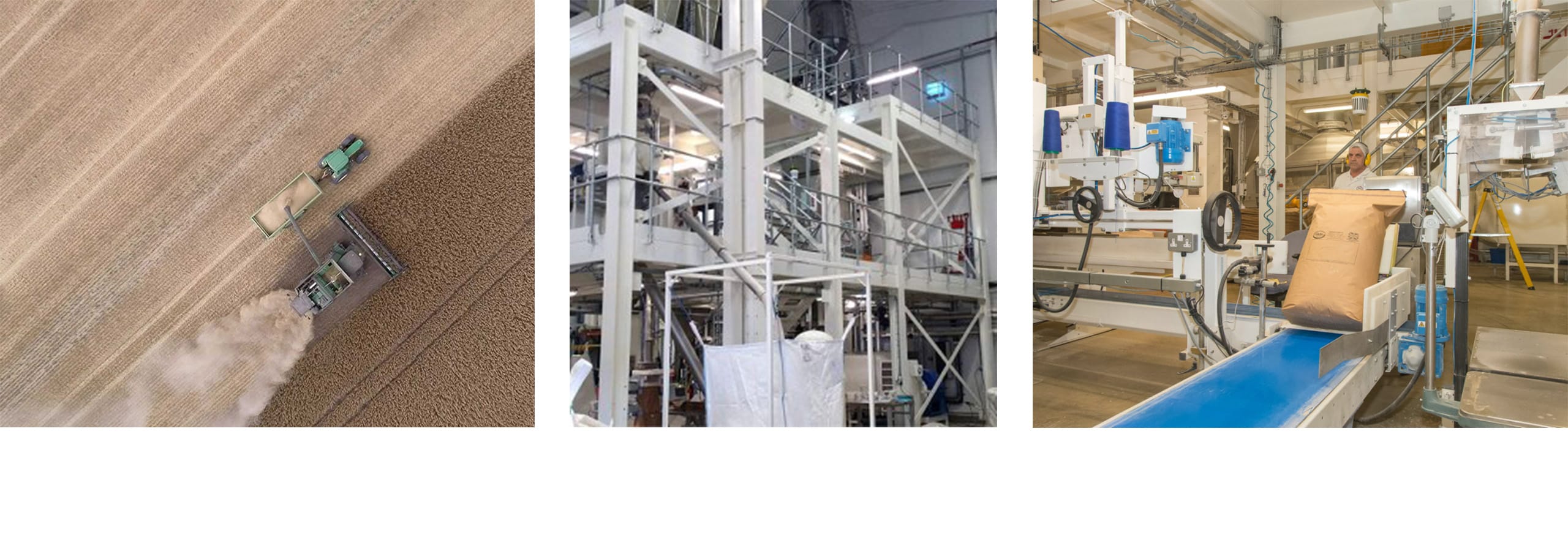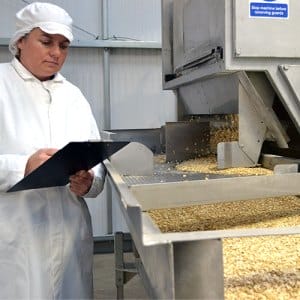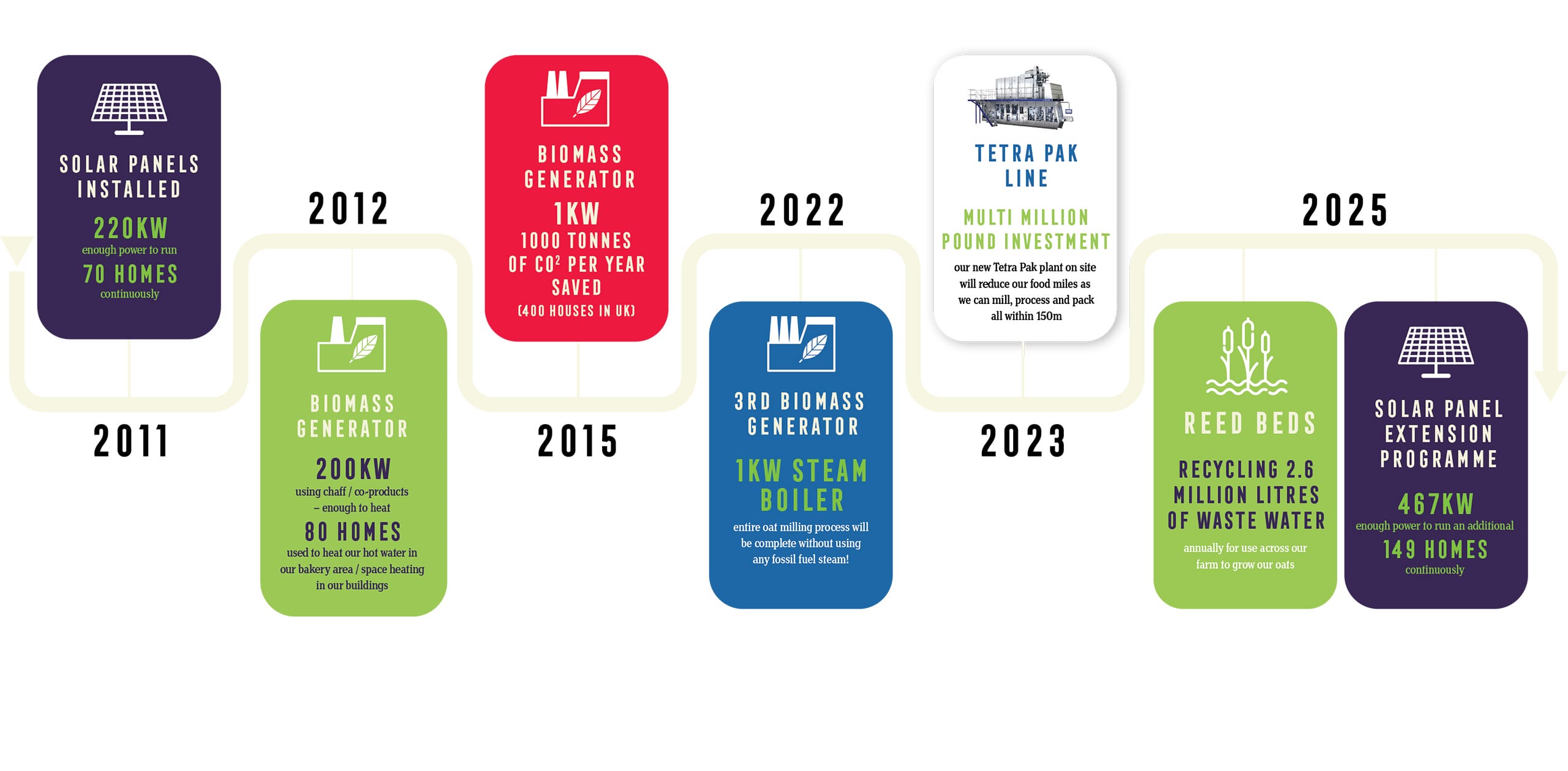May 2 2025
Focus on our suppliers: Glebe Farm Foods
At Hinxton Hall Conference Centre we use Glebe Farm organic oats. Glebe Farm Foods is an independent business led by sister-and-brother team Rebecca and Philip Rayner. They are committed to producing the purest, 100% British gluten-free oats with a strong focus on quality and sustainability.

As the only farm in the UK that both grows and processes gluten-free oats on-site, they oversee every stage of production - from field to table. Their oats are sourced from trusted local farmers within a 70-mile radius of their family-run farm in Cambridgeshire, ensuring exceptional quality while reducing food miles.
Their product range includes gluten-free porridge oats, oat flour, granola, and plant-based drinks, including soya, almond, and coconut, as well as their award-winning oat drink, PureOaty.
Take a look at how they do things
Take a look at how they do things
About Oats
Oats are a natural superfood: a wholegrain source of vitamins, minerals and soluble fibre that can help lower cholesterol and support a healthy gut. They are also low GI (Glycaemic Index) which helps your body avoid unhealthy spikes in blood sugar.
Pure oats are naturally gluten free but absolute purity is very hard to achieve. Only a dedicated process from start to finish can ensure that no other grains such as wheat, barley or rye (which do contain gluten) can contaminate the pure oats. Glebe Farm’s strict procedures ensure what most oat producers can’t: oats that are certified completely free from gluten.

How do they achieve oat purity?
- Start with seed purity - they control the location and rotation of the seeds, and fields, to ensure they have no trace of wheat, barley, or rye.
- Their vehicles only carry gluten-free, avoiding any cross contamination.
- Dedicated gluten-free handling - From the fields to the combine harvesters, from the trailers to the stores. Their mill and the entire oat handling equipment only run gluten free oats, and the company have a culture of ‘high purity’ amongst their staff.
- They provide R5 ELISA tests to ensure full traceability –they meet the highest standards of purity, by testing at less than 5ppm gluten - four times lower than the industry benchmark of 20ppm
- Pure process tests at less than 2ppm gluten - Oat grains are tested every tonne to ensure there are no wheat or barley grains in 1kg. This is done twice during the process.

Their PureOaty range is proudly the only oat drink registered with the Crossed Grain Trademark from Coeliac UK (as of May 2024), offering consumers peace of mind. This is especially important as reported gluten intolerances are on the rise, with an estimated 1 in 100 people in the UK having coeliac disease and needing to avoid gluten altogether.
What about their sustainability credentials?
Their carbon footprint is officially ‘super low’, as calculated by MyEmissions, which analyses various factors such as farming, processing, packaging, and transport.
Farming and sourcing their own oats close to their factory certainly plays a big role. Additionally, with the investment in a new multi-million-pound Tetra Pak plant in 2023, all their products are now processed and packaged onsite, bringing down food mileage, from oat milling to packing, to 150 metres. As a result, their oat milks have 50% lower emissions than leading brands, and their porridge oats have staggering 73% lower CO2 emissions than an average comparable product (as calculated by MyEmissions based on one pack per person, per week).

With their crop grown over 100,000 acres, their commitment to responsible farming is critical. They champion and collaborate with their Cambridgeshire farmers on practices such as enhancing organic matter in soil for improved water retention (vital for spring crops amidst looming drought challenges), and innovative approaches like parallel cropping (planting two distinct crops that thrive without competing for nutrients) and winter cover crops (to prevent nitrate leaching on fallow fields during winter, preventing pollutants from reaching watercourses).
You can buy their products at Morrisons, Ocado, Amazon, their own online shop, and through wholesalers and food service providers.


